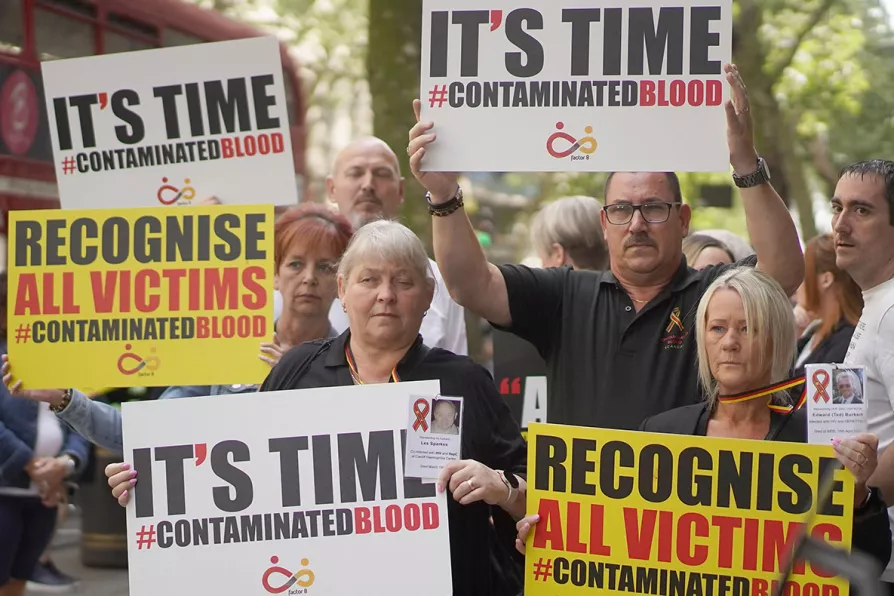
 Campaigners, including many who are personally infected and affected by infected blood, gather in Westminster, London, July 26, 2024
Campaigners, including many who are personally infected and affected by infected blood, gather in Westminster, London, July 26, 2024
IN THE light of the worst treatment disaster in the history of the NHS, officials have launched a new scheme to help identify people who may have unknowingly been given infected blood.
People aged 29 and over who newly register with GP practices in England will be asked if they had a blood transfusion prior to 1996, NHS England said.
If so, they will be offered a test for hepatitis C — a silent killer as people can be infected unknowingly for decades before symptoms appear and significant damage has already been done.
The virus is passed on through blood-to-blood contact. Without treatment, it can cause serious damage to the liver. If a person is diagnosed, they can be given antiviral medication for several weeks, with this treatment curing more than nine out of 10 patients with hepatitis C.
In its report last year the Infected Blood Inquiry, which examined the scandal in depth, recommended that the health service should work to find the undiagnosed.
More than 30,000 people in Britain were infected with HIV and hepatitis C after they were given contaminated blood and blood products between the 1970s and early 1990s. More than 3,000 people have died as a result while survivors are living with lifelong health implications.
NHS England’s national medical director Professor Sir Stephen Powis said: “The failures of the contaminated blood scandal have had a horrifying impact for patients and their families for decades.
”I would like to reiterate our deepest apologies for the role the health service played in the suffering and loss for so many.”
Campaigners for the victims say that the government has been dragging its feet over compensation. The inquiry into the scandal is following up its work by currently examining the “timeliness and adequacy of the government’s response to compensation” for victims, with a report expected later this year.












